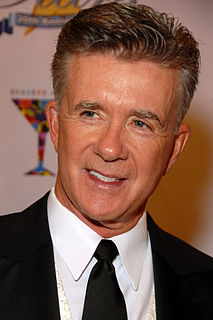A Quote by Chaim Potok
Two hundred or more years ago most people on the planet were never aware of any reality other than the one into which they were brought up.
Related Quotes
These boys, now, were living as we'd been living then, they were growing up with a rush and their heads bumped abruptly against the low ceiling of their actual possibilities. They were filled with rage. All they really knew were two darknesses, the darkness of their lives, which were now closing in on them, and the darkness of the movies, which had blinded them to that other darkness, and in which they now, vindictively, dreamed, at once more together than they were at any other time, and more alone.
Without any extraordinary effort of genius, I have discovered that nature was the same three thousand years ago as at present; that men were but men then as well as now; that modes and customs vary often, but that human nature is always the same. And I can no more suppose, that men were better, braver, or wiser, fifteen hundred or three thousand years ago, than I can suppose that the animals or vegetables were better than they are now.
Seventeen's not so young. A hundred years ago people got married when they were practically our age." "Yeah, that was before electricity and the Internet. A hundred years ago eighteen-year-old guys were out there fighting wars with bayonets and holding a man's life in their hands! They lived a lot of life by the time they were our age. What do kids our age know about love and life?
Reality is not digital, an on-off state, but analog. Something gradual. In other words, reality is a quality that things possess in the same way that they possess, say, weight. Some people are more real than others, for example. It has been estimated that there are only about five hundred real people on any given planet, which is why they keep unexpectedly running into one another all the time.
Infuriatingly stupid analysts - especially people who called themselves Arabists, yet who seemed to know next to nothing about the reality of the Islamic world - wrote reams of commentary [after 9/11]. Their articles were all about Islam saving Aristotle and the zero, which medieval Muslim scholars had done more than eight hundred years ago; about Islam being a religion of peace and tolerance, not the slightest bit violent. These were fairy tales, nothing to do with the real world I knew.
One hundred and fifty years ago the vacant lands of the West were opened to private use. One hundred years ago the Congress passed the Homestead Act, probably the single greatest stimulus to national development ever enacted. Under the impetus of that Act and other laws, more than 1.1 billion acres of the original public main have been transferred to private and non-federal public ownership. The 768 million acres remaining in federal ownership are a valuable national asset.
I have never sat down and studied the Bible, never consciously echoed its language, and am, in reality, as ignorant of it as most brought-up Christians. All of the Bible that I use in my work is remembered from childhood and is the common property of all who were brought up in English-speaking communities.
We are all here on this planet, as it were, as tourists. None of us can live here forever. The longest we might live is a hundred years. So while we are here we should try to have a good heart and to make something positive and useful of our lives. Whether we live just a few years or a whole century, it would be truly regrettable and sad if we were to spend that time aggravating the problems that afflict other people, animals, and the environment. The most important things is to be a good human being.
The faith in which I was brought up assured me that I was better than other people; I was saved, they were damned.... Our hymns were loaded with arrogance - self-congratulation on how cozy we were with the Almighty and what a high opinion he had of us, what hell everybody else would catch come Judgment Day.


































